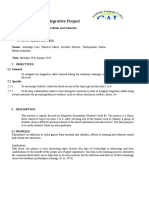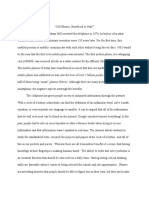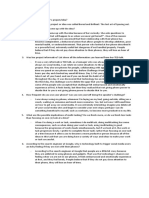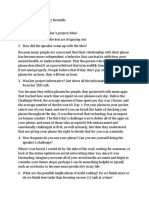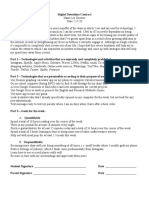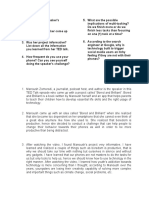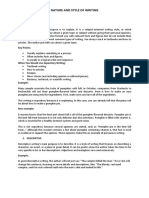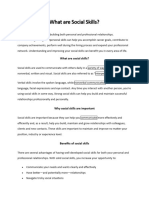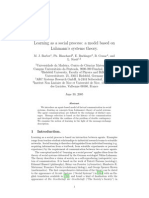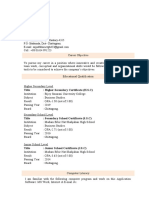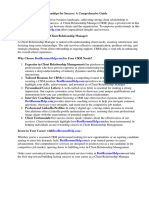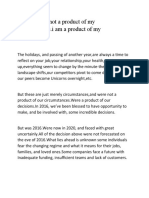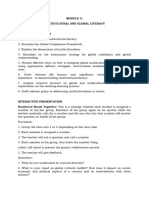0% found this document useful (0 votes)
19 views11 pagesUnit 7 Lesson 5 Reflect
This document provides a lesson plan on creativity at work that includes the following:
1. The learning objectives are to learn and apply new vocabulary, listen for main ideas and numbers/time periods, and generate strong supporting ideas.
2. One activity discusses research finding that college students spend an average of 277 minutes per day on their cell phones.
3. Another activity involves listening to an excerpt about a study where participants tracked their daily screen time over multiple years and were given challenges to reduce phone usage.
Uploaded by
mohamedqayyem127Copyright
© © All Rights Reserved
We take content rights seriously. If you suspect this is your content, claim it here.
Available Formats
Download as PPTX, PDF, TXT or read online on Scribd
0% found this document useful (0 votes)
19 views11 pagesUnit 7 Lesson 5 Reflect
This document provides a lesson plan on creativity at work that includes the following:
1. The learning objectives are to learn and apply new vocabulary, listen for main ideas and numbers/time periods, and generate strong supporting ideas.
2. One activity discusses research finding that college students spend an average of 277 minutes per day on their cell phones.
3. Another activity involves listening to an excerpt about a study where participants tracked their daily screen time over multiple years and were given challenges to reduce phone usage.
Uploaded by
mohamedqayyem127Copyright
© © All Rights Reserved
We take content rights seriously. If you suspect this is your content, claim it here.
Available Formats
Download as PPTX, PDF, TXT or read online on Scribd
/ 11


